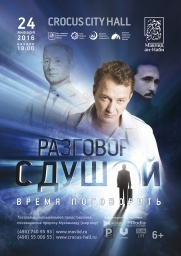Interview with a member of the Public Chamber of the Russian Federation, Farid Asadullin.
- Farid Abdullovich, in 2009 you became a member of the Public Chamber of the Russian Federation. Tell us about the results of two years of activities in the Chamber of the Russian Federation as a whole and its Commission on interethnic relations and liberty of conscience in particular.
- As an institution of civil society the Russian Public Chamber was created in 2006, the Chairman of the Russian Mufties Council Ravil Gaynutdin-Hazrat on behalf of Russian Muslims participated in the first two terms of its work, since 2010 this work were transferred to me. Such a work has its own specifics, for example you have to keep under control so many critical issues regarding the life of society - the modernization of social, ethnic relations, migration policy, health, and be prepared to competently respond to them in the course of public discussions and events, meetings with citizens, telephone calls, trips to other regions.
The primary issues for me were the rights of Muslims, whose self-consciousness in the new historical conditions, has increased considerably. For example, a particular situation regarding the unauthorized arrest of parishioners in a mosque of Vladikavkaz in early June 2011. Until now, this issue has not been closed, although it was raised by the Public Chamber which addressed it to the appropriate authorities. Young Muslims were detained by law enforcement agencies on unproven facts of purchase and distribution of drugs. The situation has been studied on the spot during the mission of the committee members in North Ossetia. I met with the mufti of the Republic Khadzhimurat Gatsalov. The working group on development of social dialogue and civil society institutions in the Caucasus has done much work as well.
Another cuurent topic is a question of construction of mosques in Moscow, which is still very acute. But there is a hope that the resolution of this problem will be found within the agreed time with the Moscow government. On this issue two roundtables - in autumn 2010 and spring of 2011 was initiated. An important aspect of this problem is the immigration policy, which today also has a certain ethnic and confessional components and is associated with the life of the new Muslim residents from the southern CIS countries in Russia. Our proposals were announced during the recent hearings in the PC of the Russian Federation, dedicated to the new concept of migration policy in July. An important conclusion of the work in the PC Russia – is social activity that should be closely linked with the professionalism and thorough knowledge of the problems the solutions of which you undertake...
- In the Public Chamber you represent the Muslim community of Russia. In your opinion, is it more preferable to focus on solutions of the Russian Ummah problems or to participate in the broader context of the discussions? And what is in particular this institution useful for the protection of the Muslim position on various issues?
- The work at the PC RF assumes the principle of personal engagement and free expression on any issue of public interest: both intramuslim and all-Russian. I tried to act as a Russian citizen and a Muslim by conviction. The problem of the struggle for a healthy lifestyle or the construction of mosques is not a narrow ethno-religious character, which is important only for Muslims, it also has a state-level measure that is important for all citizens of multiethnic countries. These issues could be provided with the necessary publicity and reach a new level of understanding. But the Public Chamber can only initiate a public hearing date to sharpen the problem, but doesn’t have power or right for legislative initiative, although it cooperates with the Council of Federation and State Duma.
In June 2010, I initiated a hearing on "Tolerance for drunkenness - a new sequence of actions for government and society", this was relevant to other colleagues from the PC RF, and were supported by organizations that had been fighting for a healthy lifestyle and prevention of alcoholism for many years. As a result we managed to get a law to increase the excise tax on consumption of alcoholic beverages. The chairman of the government signed the document, and today much work is being done that these initiatives become an integral part of our society. Similar steps are being taken in the direction of tobacco control. Today, jointly with the League of tobacco control we discuss ways of achieving the new legislation in this area.
The Public Chamber includes the representatives of other religious organizations: the ROC, Jewish, Buddhist, Protestant organizations, very often our positions on key issues of Russian reality coincide. For example, on such issues as the problem of lack of spirituality in society or the imposition of dress codes in public places that young people behave more strictly, respect the opinions of their elders. This is a very important initiative that can resist the domination of barbarism and bad taste that prevails among the youth. Today's youth is in need of serious care and attention of the older generation of Russians.
- The conflict around the reconstruction of the Moscow Cathedral mosque in all its sharpness has raised the question in what direction to develop Islam: the path of isolationism or the path of integration, which involves the incorporation into the Russian Ummah vast array of visitors from Asia. What is your position on this issue?
Islam - is a powerful spiritual movement, the fastest growing religious tradition. This is a worldwide phenomenon, and therefore isolationism cannot be a way out. Another thing, how to cultivate the spiritual values that unite Muslims in the Ummah in the new historical conditions, how to keep the material monuments that make up the historical memory of many generations of believers! The answer to this problem gives the Islamic theology - through the institutions of shura and ijma, but they are today because of fragmentation and disunity of different Religious Boards have no effect. Any constructive thesis of the Russian Muftis Council creates the antithesis opponents, and this situation continues for many years. Therefore, the solution of specific issues in each region is transferred to the level of initiative of a mufti or a group of muftis, followers. However, in the near future, the migration activity of the CIS countries will put in front of the state and responsible part of the Russian Ummah a number of vital issues, including the construction of new and reconstruction of old mosques as centers of spiritual and cultural adaptation of migrants in the Russian realities.
- In June 2011 you left the post of director of the Russian scientific-educational center "Al-Vasatyya." The person that replaced you in this post, started its activities by resetting a large portion of misinformation. So, it was stated that the Strategic Vision Group "Russia - Islamic World," created "by retired politicians and diplomats," has no relation to the education in the center. Meanwhile, we all remember that the agreement establishing it was signed by Deputy Minister for Religious Affairs of Kuwait Al-Adel Falyakh, on the one hand, and you - on the other. How would you comment on the situation?
The document you are talking about - the fruit of joint efforts by official representatives of Russia and the Arab-Muslim world. Its signing took place December 21, 2009 in Kuwait during the V meeting of the Strategic Vision Group "Russia - Islamic World" in the presence of President of Ingushetia Yu. Yevkurov, vice-chairman of the Federal Assembly Alexander Torshin, representatives of the Presidential Administration, Ministry of Foreign Affairs, the Kuwaiti side and Representatives of the Russia Muftis Council. In June 2010, at a meeting with Ravil Gainutdin Adel Al-Falyakh again witnessed a desire of the Kuwaiti side to cooperate with of Russian Muslims in the face of development assistance. I note that one of the founders of the Group, which became in 2006 the really important tool for cooperation between Russia and Islamic countries were Mintimer Shaimiev, Yevgeny Primakov, A. Alkhanov, Vladimir Popov, B. Naumkin. Ignoring the significance of these still alive politicians, diplomats, scholars, and at the same time diminish the role of creators of SEC "Al-Vasatyyya" in Moscow - is at least immodest. The agreement was signed in two copies in Russian and Arabic and has official status. To make it public would be in this situation is very helpful.
Published in "Islam Minbar", October 2011
Interviewed by Dilara Akhmetova
Head of press service DUMER
 Mawlid an-Nabi in Crocus City Hall
Mawlid an-Nabi in Crocus City Hall
